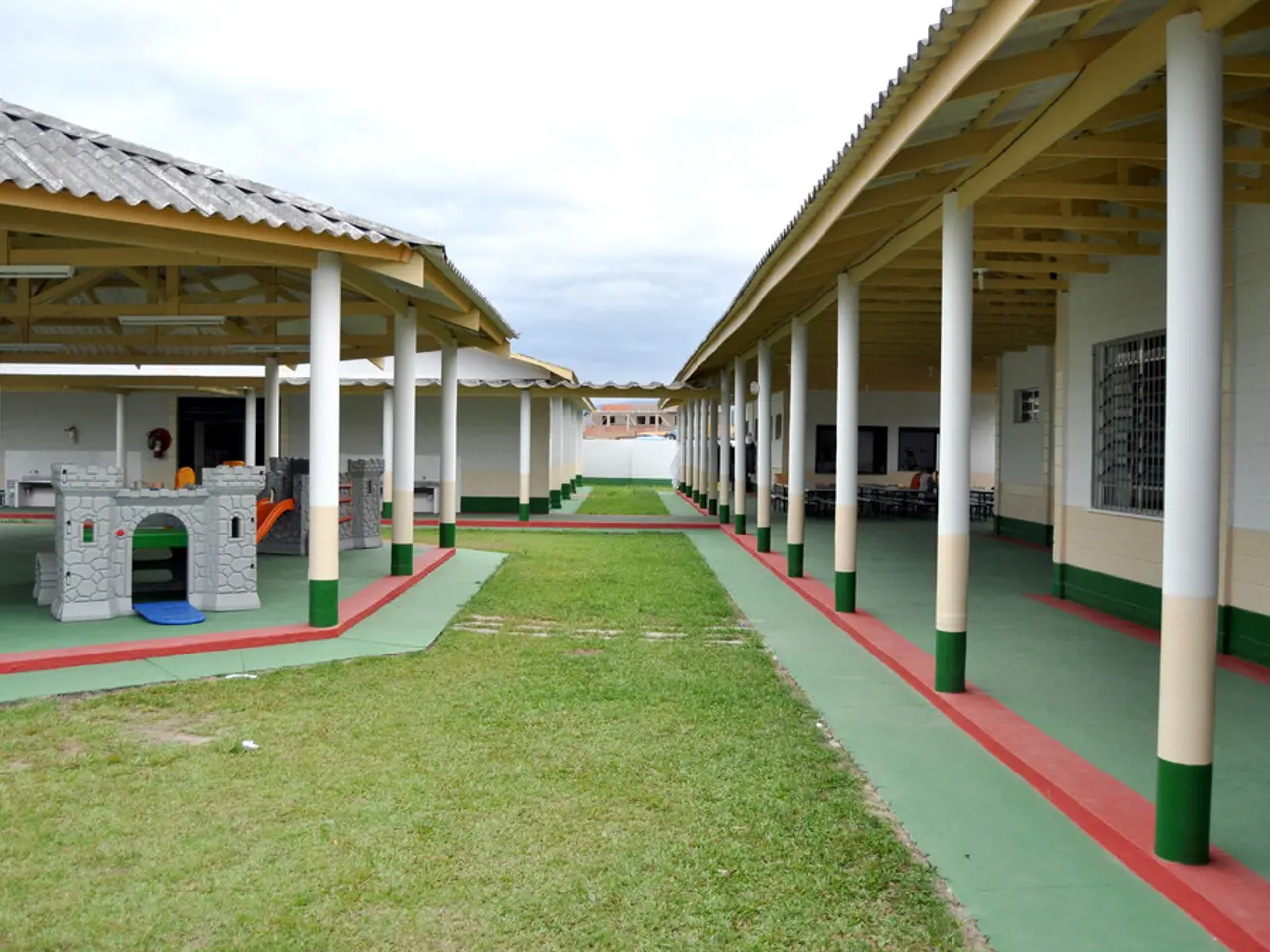Reduction in Refugee Population: Closure of Accommodation Facility in Merkers, Thuringia
In the heart of Thuringia, Germany, the district of Wartburgkreis is making significant strides in its refugee integration efforts, with a focus on decentralized accommodation and fostering social cohesion.
The political shift at the federal level, reinforcing border controls and clearer migration management, is showing results. This alignment with the district's approach is welcomed by Dr. Brodführer, the district administrator, in the Federal Ministry of the Interior.
Wartburgkreis is moving away from large, centralized refugee camps and opting for decentralized accommodation instead. This approach involves housing refugees in smaller, dispersed units across various communities. By doing so, refugees can live within local communities, interacting with residents and enhancing social integration, thereby reducing stigmatization.
The district is establishing multiple smaller accommodations, such as rented apartments and shared houses, to distribute refugees across towns. This strategy is designed to facilitate the integration of refugees into societal life.
The integration strategies in Wartburgkreis are multifaceted. They include providing access to language courses, social services, employment support, and community programs. These initiatives are aimed at fostering inclusion and interaction with local populations.
However, this approach is not without its challenges. Limited housing availability, logistical coordination, social tensions or resistance in some host communities, ensuring adequate support services, and funding constraints are among the challenges that Wartburgkreis must address.
Integration into the labor market and volunteering are actively promoted by Wartburgkreis as part of its comprehensive approach to refugee integration. The district is also addressing long-term demographic challenges, including decreasing birth rates and an aging society, in an orderly manner.
The decision to close the communal accommodation (CA) in Merkers was made because Wartburgkreis is not the owner of the property in Merkers. By the end of June 2025, only 992 people were living in communal facilities, a decrease of more than a third compared to the peak in late May 2022. This trend of decreasing accommodation numbers is seen statewide and is partly due to the decreasing immigration since the refugee movement from Ukraine.
Wartburgkreis is implementing structural adjustments to its integration strategy, with a focus on facilitating the smooth transition of refugees into the community. Repatriations are carried out in Thuringia when legally justified, and individual cases of aggression or violence may result in repatriation.
The Volkshochschule of Wartburgkreis offers new language and orientation courses as part of its commitment to fostering integration. The district's efforts to decentralize refugee accommodation and promote integration are commendable, demonstrating a proactive approach to managing migration and promoting social cohesion.
For precise and current information, consulting official local government websites, refugee integration programs in Thuringia, or academic studies on the topic would be necessary.
The federal government's policy-and-legislation reinforcing border controls and clearer migration management aligns with Wartburgkreis's approach, as acknowledged by Dr. Brodführer in the Federal Ministry of the Interior. Wartburgkreis's migration policy focuses on decentralized accommodation to facilitate social cohesion and integration, a strategy that includes establishing multiple smaller accommodations such as rented apartments and shared houses to distribute refugees across towns (general-news).







